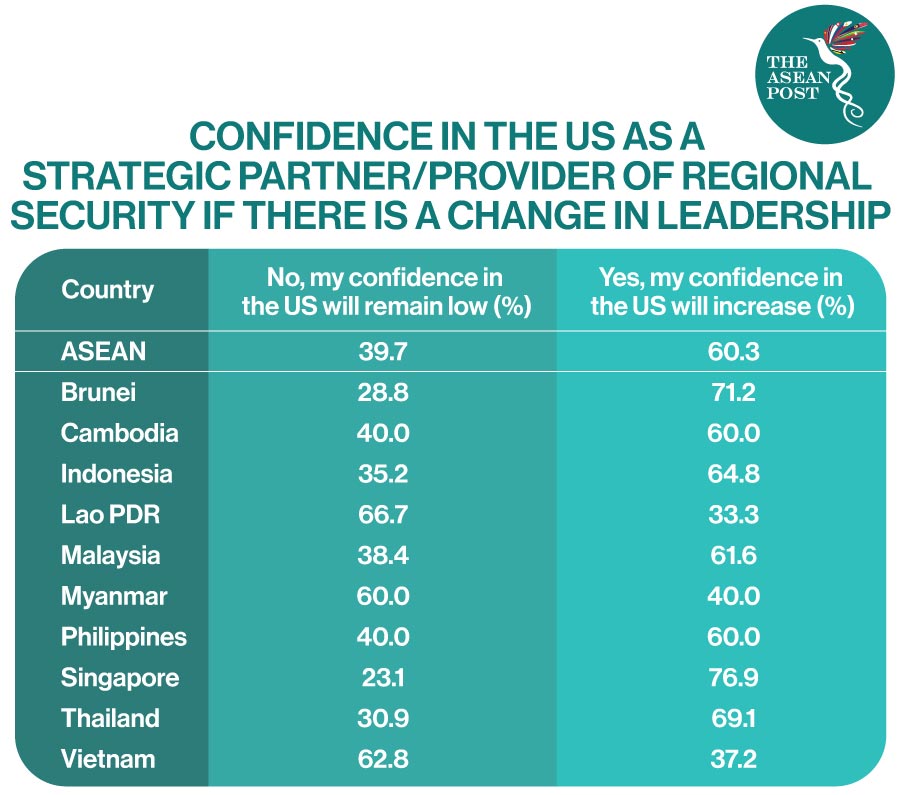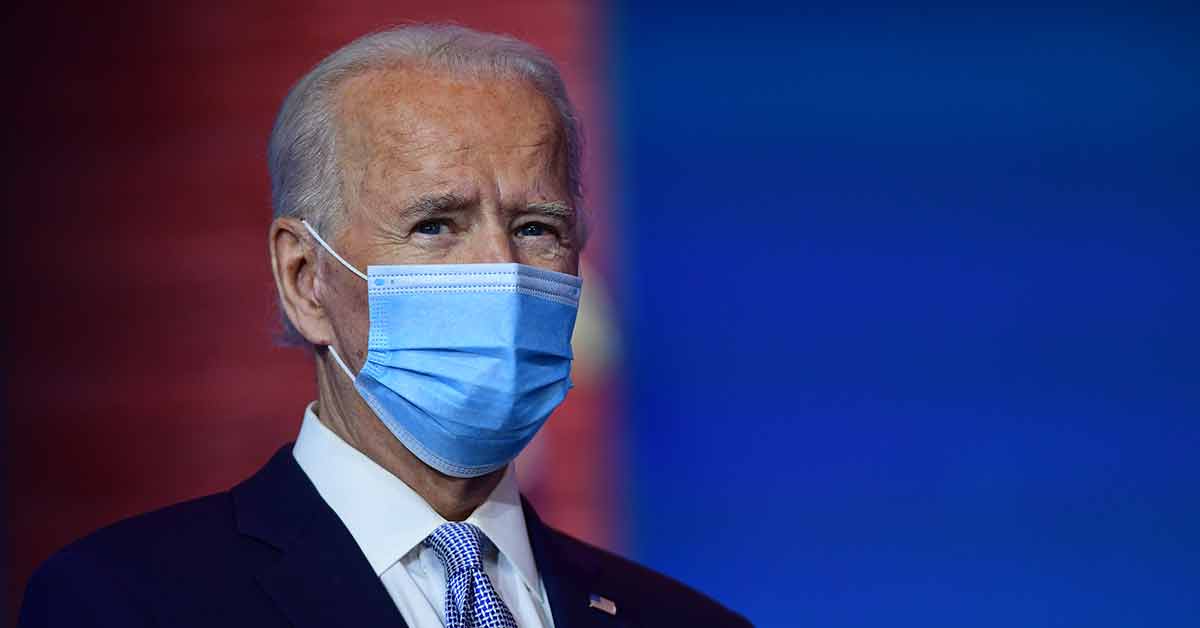The United States (US) elections have just concluded with President-elect Joe Biden at the helm as incoming President of the “free world” on 20 January, 2021. Just last week, the Trump administration officially initiated the transition process and Biden thus far has been focused on building his incoming administration while at the same time extending a hand and offering a message of healing on Tuesday (24 November, 2020).
In a Twitter post, Biden said, “The election is over. It’s time to put aside the partisanship and the rhetoric designed to demonise one another. We have to come together.”
While he extended his hand to heal American partisanship, will he also extend his hand to heal and repair the damaged and somewhat antagonistic relationship between the US and China under the Trump administration? Will he also de-escalate and put a halt to the “Sino-American Cold War” and Trump’s trade war with China? How then will Biden approach China? Will his foreign policy vis-à-vis China be no different or not far from that of President Donald Trump?
Diverging Perspectives
As the transition from the Trump administration to Biden’s presidency begins, discussion over China-US relations and how this relationship will fare as the two countries enter a new chapter in their bilateral relations is one of the “hot topics” in the Philippines. Thus far, there are various and diverging perspectives in this regard.
For instance, some of Beijing’s academics and former Chinese officials like Zhang Baijia, former deputy director of the Party History Research Centre of the Communist Party Central Committee expressed that, it is unlikely that the Biden administration would take any “big action” to improve bilateral ties with China over the next two years.
But accordingly, there are areas for possible cooperation between the two superpowers amid the many complicated bilateral issues, and that includes, “climate change and pandemic control.”
Fu Chengyu, the former chairman of state-owned Sinopec Group on the other hand said that “Biden’s ideas sound positive, but he would only be different in terms of tactics. We must not have high expectations.”
Li Ruogu, a former central banker who now heads the China International Economic Relations Association said that Biden’s recent appointment of pro-establishment figures like Janet Yellen as part of his cabinet somewhat provides a glimpse of possible improving ties with China at least economically, although US policies on certain issues like the South China Sea (SCS), Taiwan, and Hong Kong, realistically would not change.
Whereas, Yukon Huang, a US-China expert of Carnegie Endowment for International Peace and former World Bank China director, shared his thoughts on Biden’s victory for the world, for China, and the Philippines in an online webinar entitled, “2020 US Elections and the Implications for US-China Philippine Relations” on 10 November and explained that, Biden, according to him, will move towards a foreign policy more cooperative with allies, possibly reconsidering the economic, health and political arrangements that Trump abandoned.
Yukon believes that Biden is likely to be more pragmatic and less confrontational in dealing with China, though still viewing it not just as an economic competitor but as a potentially existential threat to the American way of life and their view of themselves.
He also contended that Biden will most likely consider the desire of the American business sectors to do business with and access the China market, and balance it against the government sector’s security and leadership concerns.
On the issue of accepting China as an equal, Yukon said that the US is less likely to do so because the Communist state is seen not just as an economic threat but an existential one as well; challenging the Western perception of “self” and threatening their world view.
However, according to Yukon, Biden’s presidency may take a more sensible approach than just directly threatening China.
Against this backdrop, how should the Philippines navigate this new chapter in bilateral relations between the US and China under Biden’s presidency amid the various complicated issues like the South China Sea dispute.
Balancing Act
Given the unfolding bilateral relations between the US and China under Biden’s presidency, and the recent remarks of concern expressed by Department of National Defense (DND) Secretary Delfin Lorenzana on Wednesday (25 November), pointing out that the “the crux of the security challenge in the Indo-Pacific region” is the possible confrontation between the US and its allies and China over the disputed waters of the SCS.
The Philippines might find itself in a precarious position wedged between the US and China over this issue. One may ask how then should the Philippines act in order to circumvent this conflict for supremacy in the Indo-Pacific region.
In retrospect, the most pragmatic answer to this dilemma is the continuous exercise of President Rodrigo Duterte’s “independent foreign policy,” of finding a “geopolitical nonaligned position” or a “middle ground” between the US and China; where the Philippines remains a friend of the former but at the same time deepens its friendship with China on the economic front; maximising the country’s national and security interests.
Pursuing an “independent foreign policy” will to a greater extent help secure extra leeway to manoeuvre around China and the US, while placing the country’s national interests above all else.
According to Wharton-educated, Filipino industrialist and director of the Integrated Development Studies Institute (IDSI) George Siy, one way to make the most of US-China-Philippines relations despite the SCS dispute is to focus less on politics and for Philippine government advisers/officials to abandon the current partisan approach to issues and be more open-minded. The Philippines has to see the SCS dispute from a borderless perspective as placing fixed, non-negotiable borders would only cause more tensions.
Siy further contends that the Philippines is well-positioned to benefit from both, the US and China and should therefore concentrate on economic policies. He also asserted that under Duterte’s independent foreign policy, foreign direct investments (FDIs) have multiplied and are diversified, coming not only from China but also from Japan, South Korea, the US, Australia, European countries, and others.
The chairperson of the “Build Build Build (BBB)” Committee of the Department of Public Works and Highways (DPWH) Anna Mae Yu Lamentillo agrees with Siy. Lamentillo in the same webinar where Siy and Yokun were her co-speakers, confirmed that FDIs have increased multiple times with Duterte’s shift to a more independent foreign policy vis-à-vis a more US leaning foreign policy of the previous administration.

For instance, 2017-2018 was a period where FDI to the Philippines according to Lamentillo more than tripled to US$20.1 billion compared to US$5.6 billion in 2015 under the previous administration. This again according to her can be attributed to Duterte’s independent foreign policy.
The surge in FDI since 2016, has been substantial according to Lamentillo. It has generated over 6.57 million jobs related to infrastructure building, developed 25,000 kilometres of roads, 5,271 bridges, 9,700 flood control projects, and more.
Consequently, the Philippines should bear in mind what will benefit the country politically and economically when engaging with its foreign partners.
Conclusion
Given the strong antagonism towards China among many US political institutions and the American public’s negative perception of China, a Biden presidency will unlikely change the fundamental doctrines of Trump’s foreign policy towards China, especially on issues surrounding the SCS, Taiwan, and Hong Kong.
Unquestionably, China will remain America’s foremost geopolitical adversary, and containing its rise will be a primary focus of Biden’s administration. This situation will trigger a more difficult balancing act for countries like the Philippines given its blossoming friendship with China and its historical relations with the US as a traditional ally and friend.
One of the immediate challenges that a Biden presidency is faced with is how to effectively engage China and compete, cooperate and coexist with it given the damage inflicted on Sino-American relations by the Trump administration.
Nevertheless, under Biden’s presidency China and the US may cooperate and collaborate on issues related to coronavirus pandemic control, climate change, nuclear non-proliferation, and global terrorism.
Economic cooperation is also a possibility, particularly in the area of trade. If this were to happen, then it would certainly reassure the international community as opposed to a scenario where two of the world’s largest powers are locked in full-scale rivalry, threatening world peace and political stability.
Although these areas of possible cooperation between the two countries may reduce US-China tensions significantly, it will not necessarily change the trajectory of the Sino-American great-power conflict and competition for supremacy, especially in the Indo-Pacific region in the foreseeable future.
Nonetheless, China and the US should find a compromise to co-exist peacefully. Cooperation between China and the US on vital global issues is indispensable and vital to global survival, stability, and peace.
On the part of the Philippines, the best way forward is to continue to pursue an independent foreign policy beyond Duterte’s term while ensuring national interests are given primordial considerations above all other foreign interests. In dealing with the SCS dispute, the Philippines should not treat its relations with China and other claimant-states as a zero-sum game.
The Philippines together with other claimant countries must pursue a peaceful resolution of the SCS dispute through bilateral relations and multilateralism within the ambit of ASEAN mechanisms like the “Code of Conduct (COC) in the SCS”. This is by far the most pragmatic and viable approach to easing of tensions over the disputed waters.
The process of building consensus may prove to be difficult but is not impossible; while confrontation on issues surrounding the disputed waters surely is self-defeating.
On the other hand, China needs to continue with good, soft power diplomacy. It needs to exert efforts to make the world feel less threatened as it peacefully rises as a superpower. China needs to foster goodwill not just with other governments but with the peoples of the world too.
Related Articles:

